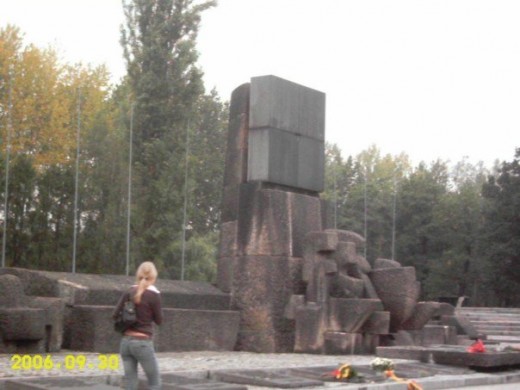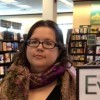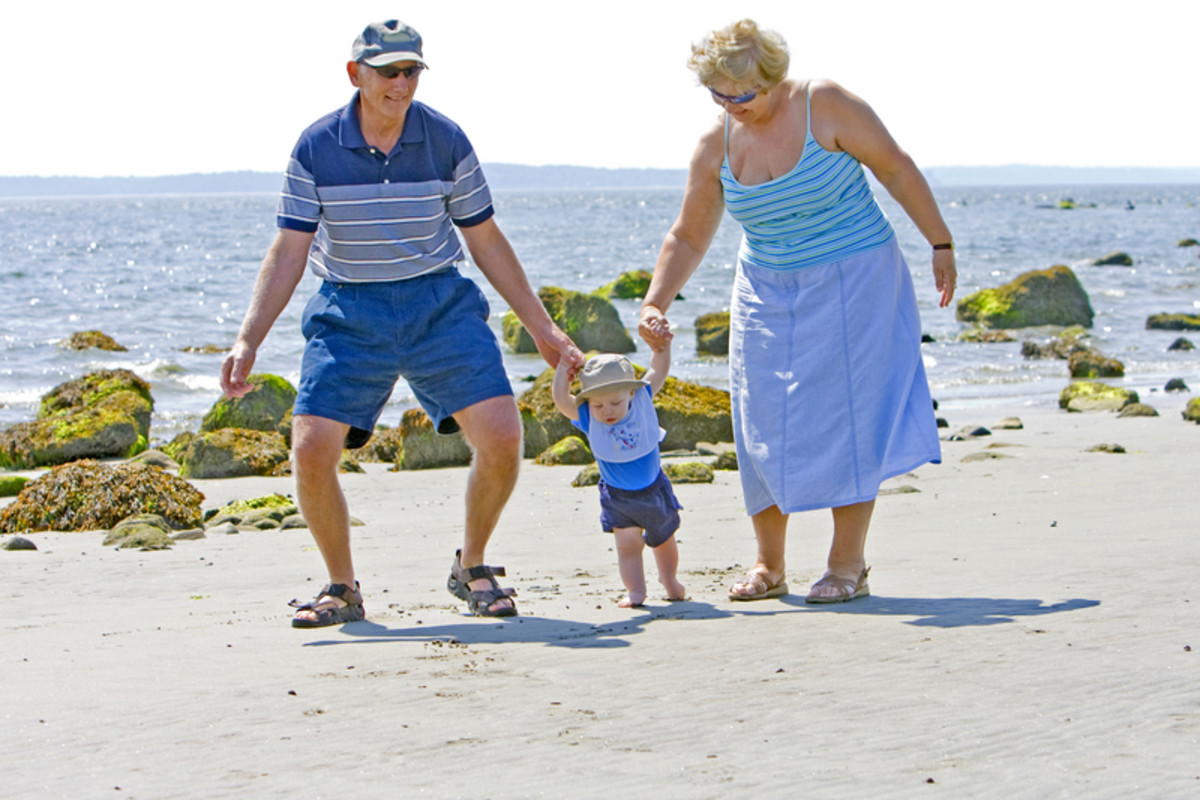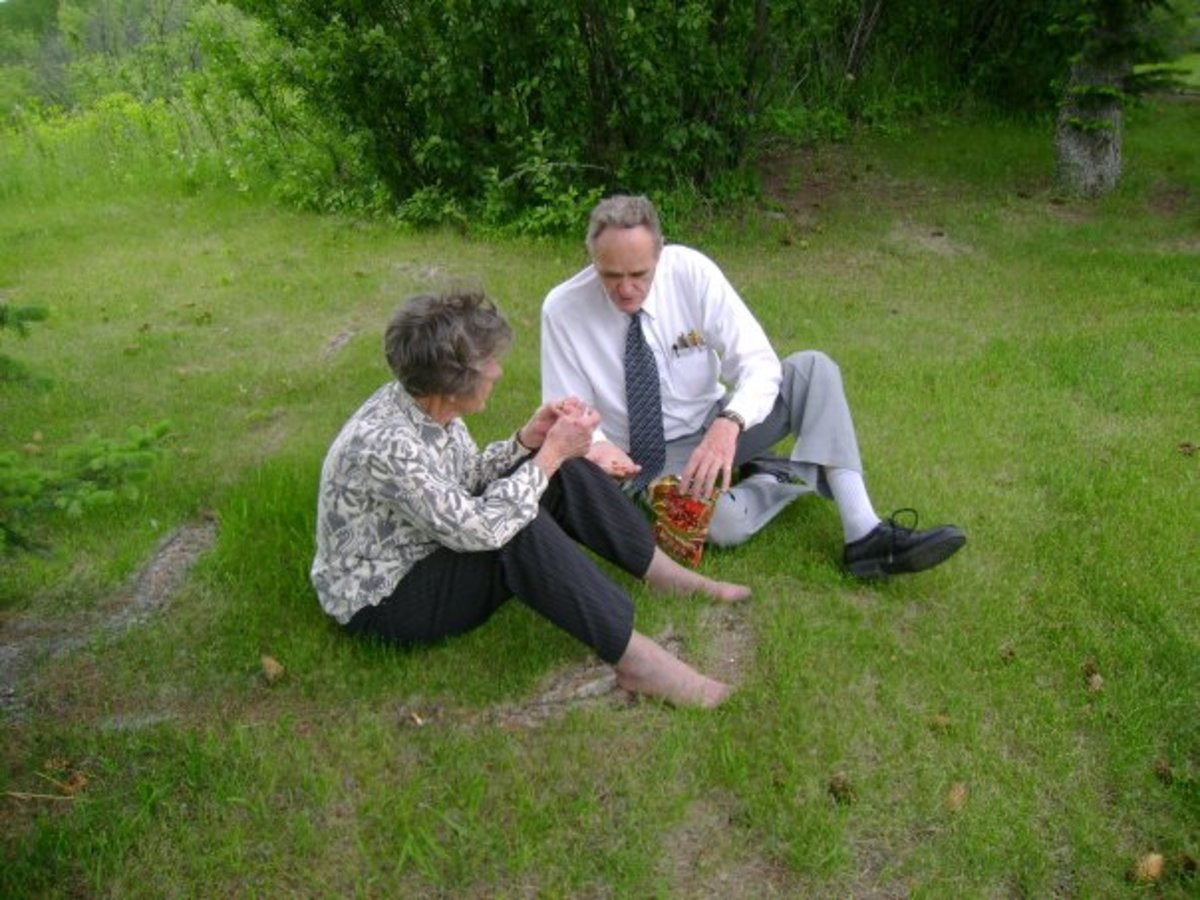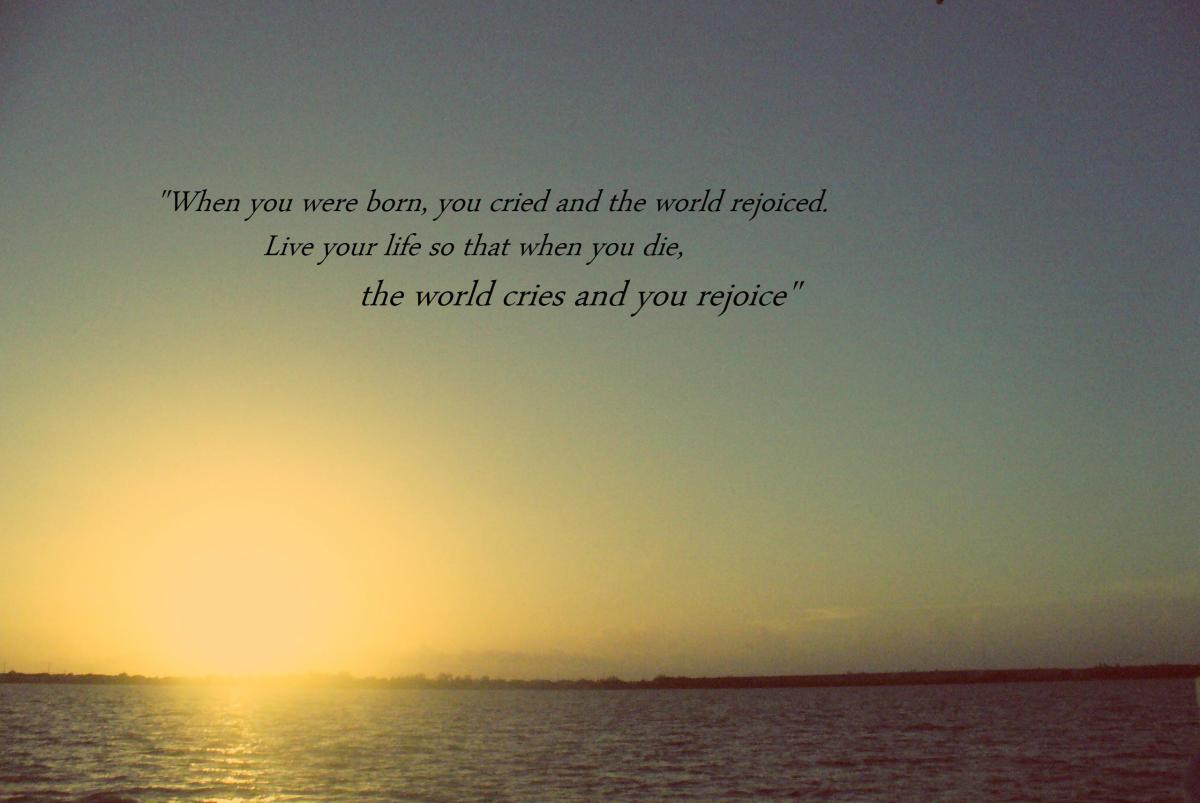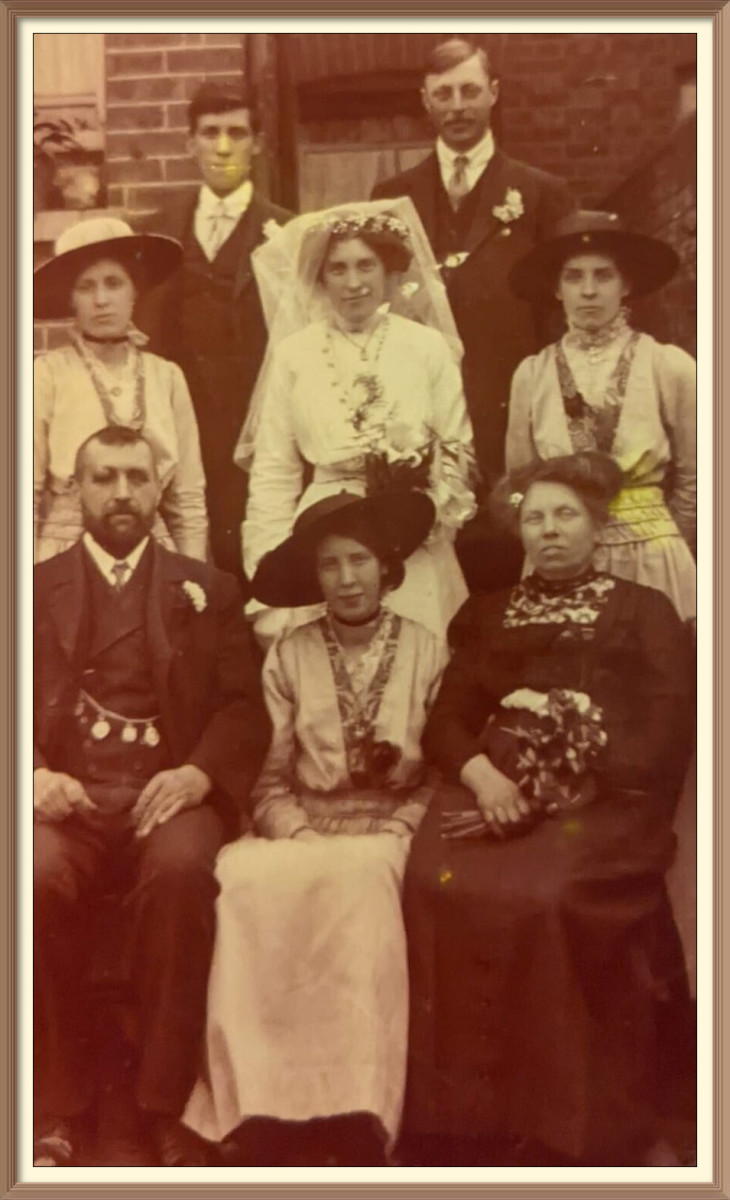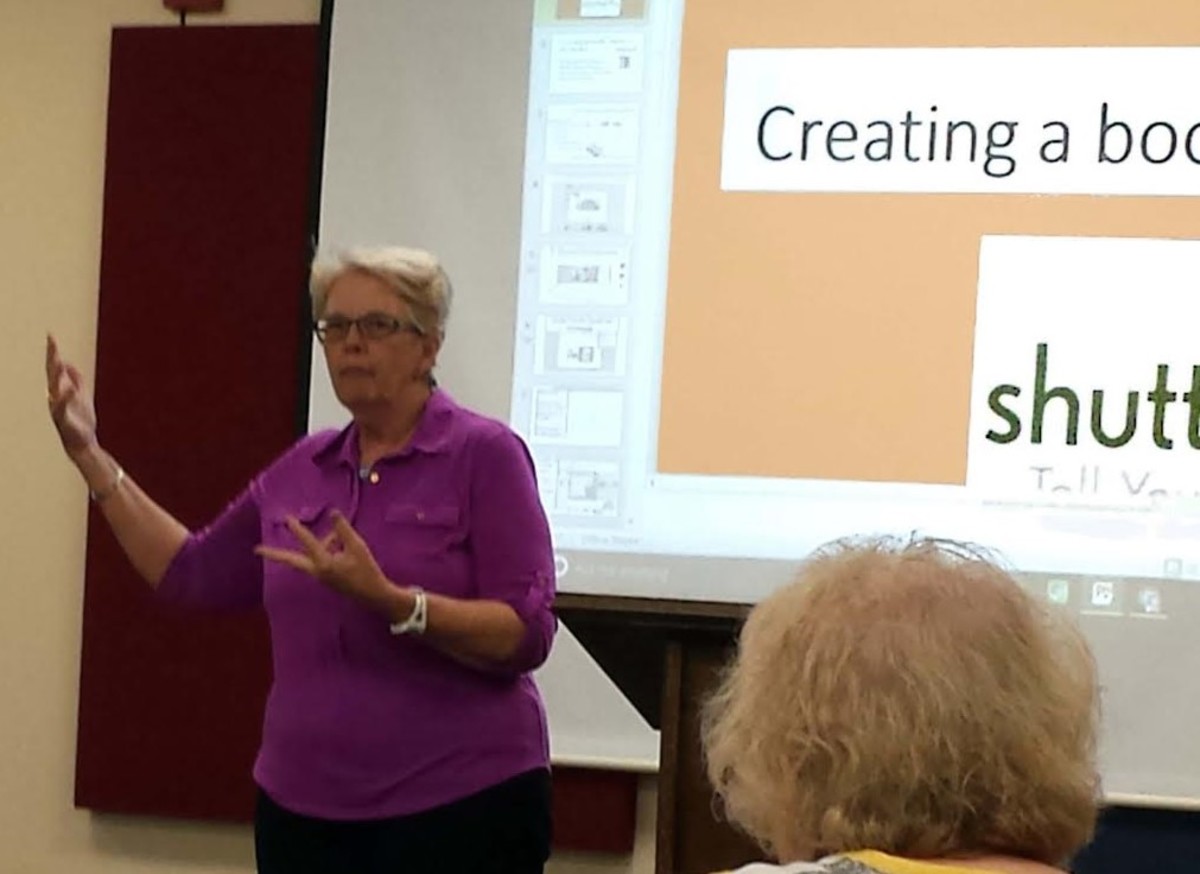What Is It Like Being the Grandchild of a Holocaust Survivor?
History Versus Legacy
Yesterday, I visited the Holocaust Museum and Education Center of Southwest Florida, primarily to get information on funding and research opportunities for some books I want to write. Visiting museums and other sites related to the Holocaust for me tends to be far more personal, because of the fact that my maternal grandfather was a Holocaust survivor. Therefore, I was prepared to react in a more emotional way than the other visitors on the museum's guided tour.
I did end up getting emotional, in particular, when one of the fellow visitor's mentioned in frustration how individuals like Mahmoud Ahmadinejad of Iran can deny that the events of the Holocaust ever happened. In response, I replied, "yeah I agree! [Ahmadinejad and others like him] Tell that to my grandfather, my grandmother and my mother that the Holocaust didn't happen!" It was at this moment that I broke down and started to cry; I told the other guests my grandfather's story, and what it was like for my mother and grandmother to have him in their lives. One thing that I know I made clear to the other guests that those who deny the Holocaust ever happened only insult the memory of family members like my maternal grandfather and their descendants, who have had to live with a person in the aftermath of such a horrid tragedy. The other guests were very moved by what I had to say, and were in firm agreement. Even though they didn't have family who survived and/or died during the Holocaust, they were disgusted and convinced enough by the facts and events the guide had discussed with us during our visit that they emphasized with my reaction.
Since my visit, I have been thinking about the conversations I had with other guests and the volunteers at the museum. The main thought, which really was an observation that I had, was this slight difference in reaction and perception as to what the Holocaust means for those who didn't have family involved, and those who did. The difference comes down to this: for those who learn about the Holocaust, it's a tragic event from history that should never be repeated, while for those like me who have family members that survived and/or died during the Holocaust, this is a tragic legacy we have to live with, and make sense of for the rest of our lives.
This article will do its best to help to distinguish the link between the Holocaust to the children and grandchildren of survivors/victims like myself and the legacy it leaves for us.
Empathy Versus Responsibility
The majority of people I encounter who read about the Holocaust, visit museums like the Holocaust Museum and Education Center of Southwest Florida, and/or whom I've told about my late maternal grandfather, respond with strong empathy. For example, the guests who were with me during the tour at the Holocaust museum were very solemn and sad to hear about the grotesque details and horrid treatment of the Jewish, Gypsy, Homosexual and Slavic victims/survivors of the Holocaust. I saw similar reactions and responses to those who visited Auschwitz I and Auschwitz-Burkenau. Even though these individuals didn't have family who died during the Holocaust, for them, this is a tragic act in history that affected innocent, human beings. Human beings, most importantly, who didn't deserve to die and/or be discriminated for who they were. The empathy they feel is for the families who lost their lives or suffered through this. While I told the story of my grandfather to the fellow visitors at the Holocaust Museum and Education Center of Southwest Florida, two of them came to comfort me when they noticed I began to cry. The reason why, is simply because these individuals were honest, caring human beings who could empathize with the personal sensitivity this issue has for me. They know that if they had family that had survived and/or died during the Holocaust, they would reflect their sadness and solemnity with tears like I did.
From my point of view, I can accept and relate to this kind of empathy; any honest, altruistic, caring human being would feel this way hearing about an event like the Holocaust. It is this kind of empathy that inspires action, and the desire to want to make change i.e. don't let another event like the Holocaust ever happen. However, there isn't that personal sense of responsibility related to that empathy, as it is for someone like me, the relative of a Holocaust survivor. Actually, the word empathy is kind of a tricky word to use in regards for an individual related to a Holocaust survivor and here's why: it is hard for the descendant of a Holocaust victim to empathize 100% with the individual in question because the horrid human rights violations he or she experienced. This is because the events of the Holocaust are hard to digest and difficult to learn about, especially from an emotional standpoint. Your descendant, themselves, have a hard time emotionally and psychologically digesting the debauchery, violence, and cruelty they witnessed. One thing, well at least my mother, my grandmother, myself and my other friends who are related to a Holocaust survivor/victim know that there is a lot of anger and sadness felt within that person. My grandfather, for example, got hostile at my father for owning a Volkswagen, and suffered from PTSD while he served in the Korean War, which led to his transferr to Tokyo. My grandmother and mother also remember his demeanor as being so solemn that it would "suck the joy out of the room." For my mom and grandmother, they couldn't understand why he carried on such a sour, solemn demeanor, especially since now he had a wife and a daughter who loved him very much. It wasn't until my mom and I started reading more about the Holocaust and met other Holocaust survivor descendants and victims that we realized that my grandfather's demeanor wasn't unusual. However, how does a family member accept the fact that another will never be truly happy, all because of a traumatic past event? This is something my mother and grandmother have been trying to accept: the fact that they didn't make my grandfather happy and that it seemed like he never tried to make himself happy. In order to learn to accept this, I know my mother and I have made an effort to educate ourselves about the Holocaust, as well as get as much information from my grandmother as possible about my grandfather. The purpose of this, is to better understand what happened to my grandfather during WWII that left him so traumatized to where he couldn't really be the father and husband my mother and grandmother expected him to be.
It is this realization that really separates those who have family who survived/died in the Holocaust to those who don't: how to live with this? How to carry on? Like our Holocaust survivor family member, we realize the answer to both of these questions is to live our lives the best we can, yet at the same time, this isn't so simple. Take my grandfather for example: he married my grandmother, fathered my mother, got his US citizenship, joined the US army, and did his best to make a living as a barber and live his life. However, he was still tormented by his experience in the camps, that it made it very hard for not only him to be the father and husband my grandmother and mother needed him to be, but for my mother and grandmother to fully emphasize with him enough to make the relationship work. Sure enough, my grandmother and grandfather ended up divorcing, and my mother barely saw her father during her childhood and early adulthood. However, I just met a lady yesterday by the name of Rosette, whom I interviewed for some books I'm writing, who told me a different story. Her parents placed her into hiding around 1943 in a small French village when they got a tip from her teacher that the Nazis were starting to round up the Jews and kill them. She has her moments, she told me, where she misses her parents very much. She lost both of them unfortunately in a death camp and she didn't find this out until much later in her life. However, despite the fact that the misses her parents dearly, she has managed to marry, have children, establish a career for herself, and live a very full, happy life. I will admit, that when I met and talked with her, it was hard for me to believe, or even imagine, that the Holocaust had touched her life the way it did. She had managed to move on and live her life, despite the fact that she did carry dark memories and emotions related to the loss of her parents, and from being separated from them in the first place. Her children are also great success stories as well: all of them are married, have children, are well educated, and have great careers. So, it just goes to show you that it depends on the initial experience that the family member had that will impact not only how they tried to live their lives, but also, how their descendants live theirs. In most cases, descendants of Holocaust victims are very successful: I am highly educated, I work in several fields as an independent contractor and I am working on establishing the Sama Tata Foundation. I have another friend, whose family survived the Holocaust, who is working for a non-profit that specializes in the arts, and she also is highly educated. Sometimes we are haunted by our family's past, sometimes we are not. In my case, I know very little about my grandfather, and I have always found his story to be very tragic. However, I realize its historic value, which inspires me to want to learn more in an effort to tell his story. My friend knows more about her family than I do, especially since most of them live close and more of them survived longer. Rosette's children are also very successful, and seemed to be touched by their mother's experience-probably because of its historic value. However, they live their lives, just as I do and my friends do, despite the fact that this historic event looms over us everyday from time to time.
Retracing A Lost Past
This is really the hardest part of being the descendant of a Holocaust survivor: how to recover what your family lost during World War II? I don't know of a second or third generation descendant of a Holocaust survivor who wonders about their family's experience, and wants to recover as much as they can of what was lost during the war. I have met several Holocaust survivors who have researched what happened to their parents, to family members, and Nazis tactics towards eradicating the Jews and other "undesirables" in order to understand fully what they experienced. My grandfather traveled back to Poland in the 1960s for this very reason; we don't know the exact details, however we do know that he found his brother and sister and found out that his parents were dead. Rosette, the Holocaust survivor I interviewed who went into hiding, she found a tracing service to help find out what happened to her parents. My mother, often reads about World War II, in particular, about the Holocaust, in order to better understand what her father went through.
However, finding information about a family member who survived or died in the Holocaust can be easier said than done. The reason why is that a lot of documentation was destroyed during the war. Furthermore, the Nazis confiscated a lot of belongings and other valuables that have now been lost. Additionally, family members might have changed their names enough to where it's hard to trace them in the first place! For example, I know my grandfather changed his last name; now that he's gone and we are not in touch with his siblings, doing genealogical research on him seems improbable. One thing that seems to be helping my family, however, was to get in touch with local survivors and our local Holocaust museum/research center. In my case, the educational director at the museum and several of the survivors I talked to helped to give me leads to further my genealogical research.
It is also important to visit the locations that your family member mentioned in their story. For example, I visited Warsaw, my grandfather's birthplace, and did whatever I could to at least see the sights related to World War II and tell my grandfather's story. I will warn those of you that if you have a family member who originated from Poland and plan to take a trip like I did, you might have a hard time getting information from people about what happened. The reason why is because most people don't want to talk or even think about World War II. To them, it's more than history, it's a way of life. So, if you do talk about your family's story, be careful. I'd recommend that to anyone doing research and/or visiting locations related to family in Germany; many Germans are embarrassed, ashamed, and have a lot of emotional pain about what happened in World War II. Therefore, be careful with whom you tell your story to during your visit to either Poland or Germany, or some of the other locations your family's story might lead you. However, I know for me, it was worth seeing where my grandfather came from. Additionally, I learned a lot of historic facts and leads that I never would have learned on my own. I hope to go back to do actual genealogical research on my grandfather in Poland, in addition to doing fieldwork for several books on the Holocaust. However, I want to make sure that I know Polish and German before I go; you might want to do the same if you do something like that as well.
I learned a lot just from visiting Auschwitz-at least it helped me confirm that my grandfather wasn't there. However, I learned a lot about how the Nazis treated their prisoners and what they tried to do to cover up their horrible acts. If you have family that you know for sure either survived or died at one of the death camps/labor camps, go see it for yourself. Ask as many questions as you can to the interpreters there at the camps as I did; they can help you fill in the blanks about your family's past. Another thing I highly recommend is to pay respect to your family members and those who died at Auschwitz or whichever camp you visit. I know Auschwitz has several flower shops were you can buy something. You can leave it in a desired spot at the camp so that you can find some peace in paying respect to your loved one, but also remind the world that places like Auschwitz are grave sites and deserve their reverence.
Another thing I highly recommend is that you read as much as possible about the Holocaust and World War II. You can find these books either at your local library, a Holocaust museum/research center or at a book store. If you can, see if you can read primary documents; these you might be able to find at a Holocaust museum/research center. However, please be reminded that very few primary source documents survive from this era because of the destruction the Nazis caused and their determination to eradicate Jews, Slaves, Homosexuals, Gypsies and other "undesirables".
Paying Respects at Auschwitz-Burkunau
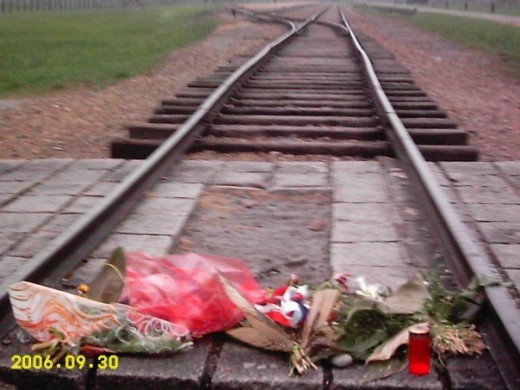
Do Not Let This Happen Again
One thing very important to anyone with a compassionate heart, whether they are the descendant of a Holocaust survivor, a Holocaust survivor, or an informed individual on the subject, is to do whatever you can to never let this happen again. That is why survivors write memoirs of their experiences and speak at events, Holocaust museums exist, and the Holocaust is taught in schools. I have met those like me who are inspired by their family's heroic survival to speak out about the Holocaust and support all efforts to do so. In contrast I have met those who are great humanitarians, who have no association with the Holocaust, do what they can to make sure that word gets out so that the world can learn the lessons it needs to for this to never happen again.
However, one thing I will note is that the days are numbered for younger generations to meet an actual Holocaust survivor. Several individuals at the Holocaust Museum and Education Center, including Rosette, one of the survivors I spoke to who volunteers at the museum, told me that this generation of children will be the last to see an actual Holocaust survivor. After that, it will be up like individuals like me to make sure no one forgets. Therefore, this is why I write about the Holocaust, that I work to establish my own non-profit, the Sama Tata Foundation, to assist victims of child begging and child slavery in ways my grandfather only could have dreamed of, and why I read about it. As a political scientist and as someone who works with children's rights on a daily basis, acts of genocide and human rights violations are not a thing of the past. I wish to God they were, but this is why, as the granddaughter of a Holocaust survivor, I must help carry on the lessons to be learned from the Holocaust so that we can help the victims of today, but also make atrocities like the Holocaust forever a part of history, and not of people's lives. Therefore, take this to heart whether you are the descendant of a Holocaust survivor like me, or someone who survived the genocide in Rwanda, Cambodia, Guatemala or San Salvador-never let the world forget what your family went through. The reason why is because you can help save another person-your life was preserved for a reason, whatever that reason is will be revealed with time. However, one thing you can do from it is honor your loved one's life by telling their story to others and write about it. After all, it's not only history, but a valuable lesson we can teach others to help prevent tragedies like those that happened to our families.
Holocaust Memorial Auschwitz-Burkunau
